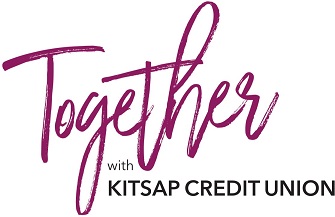We’re sharing some tips for managing your dollars wisely. From setting up your budget to investing your money, managing your finances takes work but it’s always worth it. Smart financial decisions will only help you and your family in the long run, and it’s never too late to start changing your attitude towards your finances! Read below for our top 10 tips on managing your money in the best ways possible.
Spend less than you make
This sounds simple, right? Often, we don’t realize how much we are actually spending until we start reflecting on our accounts. How much do you make a month? What are your monthly expenses? Living frugally is the base foundation for financial freedom. Cut out unnecessary costs like your “wants” of things you buy for fun and leisure to make life more comfortable. By eliminating these “wants” and focusing on your “needs” that are essential for living and working, you would be surprised how much you have left over.
Track your spending
Track your spending throughout the month either on paper or digitally. By keeping a close eye on where your money is going, you can get a deeper understanding of your finances. Categorize your purchases into groceries, utilities, travel expenses, eating out, shopping, etc. This will help you find areas to cut back in your spending on recurring charges on things you may not be using—for example, paying for three streaming services when you’re only using one. This will also help you find any spending you can trim down to save money.
Have a strategic budget
A monthly budget will consist of the money coming in, money going out, and how you’re contributing to your goals financially. The money coming in includes your income and refunds or anything else you will be bringing in. The money going out isn’t just for your expenses like bills, but all expenses like dining out, entertainment spend, and purchases for your kids. It will include everything. Categorize everything you’re paying to help organize your budget and set spending amounts for each category.
Put money into savings.
Putting money away into a savings account should be a part of your budget. The old saying goes, “Pay yourself first.” Contribute to your savings regularly, no matter how small the amount is. $50 a week is over $2,500 extra at the end of the year. Look for accounts with the best interest rates to help your money grow. Savings are essential for retirement, emergencies, special “wants,” or whatever is part of your life.
Have an emergency fund
Emergency funds can come from your savings account. No matter how much you plan and are careful, emergencies always arise. You never know when an emergency will happen, so it’s important to keep contributing to your savings account. Experts recommend that you spend 50% of your income on necessities and bills, 30% on savings, and 20% on discretionary items.
Get out of debt
One of the most effective ways to manage your money is to be debt free. You must know the details: how much do you owe and who do you owe it to? What are the interest rates on your debt? What are your minimum payments and their due dates? There are two popular methods to pay off debt: the snowball method and the avalanche method. The snowball method attacks debt by first paying off your smallest debts and using that momentum to pay off the more significant debts. The avalanche method is the opposite; in this method, you will first pay off the debt with the highest interest rate to reduce the amount of interest paid overall. You go down from the highest interest rates to the lowest. Either way you choose, just make it a goal to pay off your debt!
Shop around for the best deal
Change your mindset and start spending your money frugally. Look through your grocery store’s circular to find out what’s on sale and what coupons are available. Consider waiting for sales for “want” types of purchases. Buy things second-hand if you can. Evaluate if you can barter for services or goods. Maybe you can create a logo for somebody who could, in turn, fix your bike’s brakes.
Never miss a payment
Missing payments has negative consequences. It will likely impact your credit score which could then affect future purchases. A history of missed payments shows lenders that you aren’t in control of your finances which could lead to higher interest rates, harder approvals for cars and credit cards, and even harder to get a job in some cases.
Establish a solid credit history
Building good credit is key to managing your money wisely. When you’re capable of building and maintaining a good credit score, it will have the opposite effect of missing payments. A good credit score means better interest rates on loans and mortgages, qualifying to borrow more and opening doors to better apartments, houses, and cars. The process will take time, but you should always keep your credit card balances low, make your payments on time, and regularly check your credit report to see how your financial decisions affect your credit score.
Use what works for you and stick with it
Once you have a plan and it’s working for you, stick with it. Managing your money takes time and you’ll find you have to make adjustments as you go. Setting and working towards your budgeting goals means your in control of your money!
Take part in these 10 financial tips, and you’ll be on track to success in no time! Remember that you ultimately have control over your finances. Budget your money, track your spending, and always remember to “pay yourself first”!






